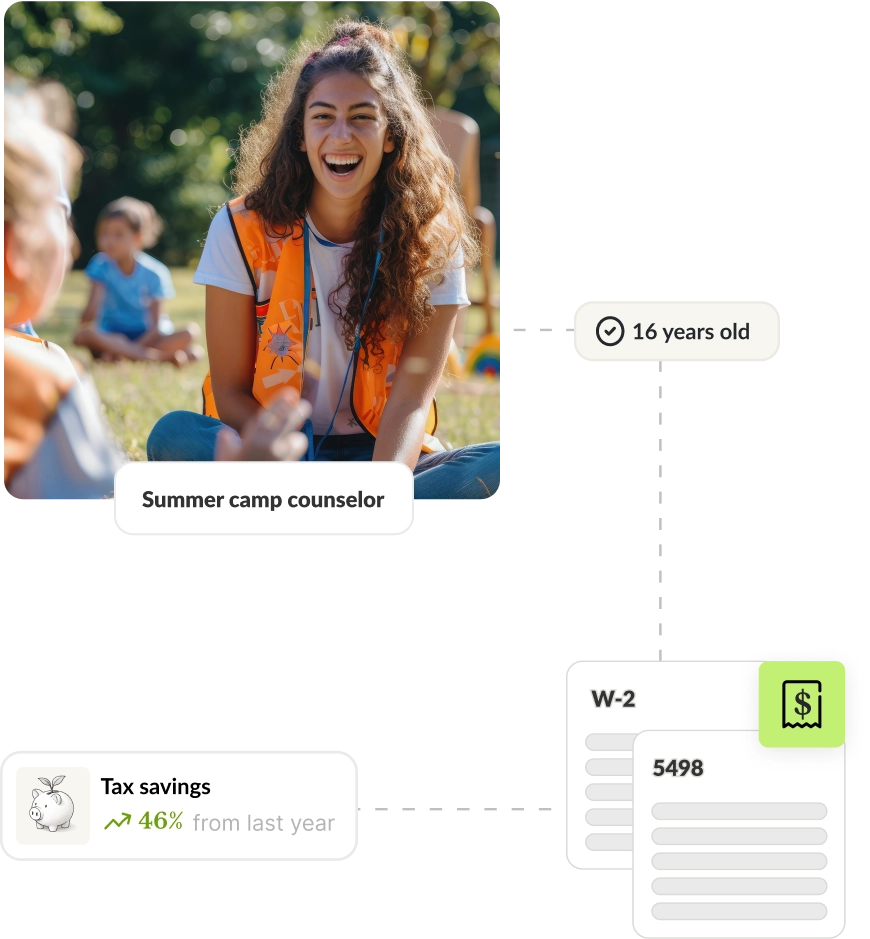2026 Washington State Tax Deadlines
Washington Individual income tax filing deadlines and extensions for 2026
Washington does not impose a state Individual income tax, making it one of the most tax-friendly states for Individuals. However, residents should be aware of federal tax obligations and certain business tax considerations that may apply to specific activities within the state.
Washington business tax deadlines for 2026
Business & Occupation Tax (B&O) deadlines and requirements
Washington imposes a Business & Occupation Tax instead of the traditional Corporate Income Tax. B&O tax is due monthly or quarterly, depending on the reporting period.
B&O Tax Filing Schedule
- Monthly filers: Due the last day of the month following the reporting period (e.g., January B&O due February 28, 2027)
- Quarterly filers: Due on the last day of the month following the quarter
- File via MyDORWAY
- Payment is due with the return
Sales & Use Tax deadlines for 2026
Businesses with sales tax obligations must file monthly or quarterly returns due on the 20th of the month following the reporting period.
Filing requirements include:
- Monthly/Quarterly returns due 20th of the month following the period
- File via MyDORWAY
- Payment is due with the return
- Electronic filing encouraged for most businesses
Extension considerations for Washington business taxes
No extensions available for B&O and sales tax returns. These taxes must be filed and paid by their statutory due dates.
Pass-through entities
Washington does not require separate state income tax returns for S Corporations and Partnerships since there is no state income tax. These entities are only required to file federal returns, although they may be subject to B&O tax and other business taxes based on their activities.
Washington Individual tax considerations for 2026
No State Individual Income Tax
Washington Individuals enjoy the benefit of no state Individual income tax. However, Individuals should be aware of other tax considerations, including:
- Federal tax obligations remain unchanged
- Sales and use tax on purchases and transactions
- Local tax jurisdictions may impose specific taxes
- Property taxes (administered locally)
- Estate and gift tax considerations at the federal level
Sales & Use Tax Considerations
While there is no personal income tax, Washington imposes sales and use tax:
- Sales tax: varies by jurisdiction, typically 6.5% to 10.4%
- Use tax: required on out-of-state purchases
- Local jurisdictions add additional sales tax
- Special rates for specific industries and activities
What Washington tax professionals need to know
Washington's unique tax environment presents specific planning opportunities and compliance considerations for tax professionals working with clients in the state.
Electronic filing requirements
Washington has implemented electronic filing systems for business taxpayers:
- C Corporations subject to B&O tax should file electronically through MyDORWAY
- Business tax returns can be processed more efficiently through electronic systems
- Professional preparers should use approved systems
- Electronic payment is encouraged for business taxes
Unique Washington tax features for 2026
Washington offers several distinctive tax features, including:
- No personal or Corporate income tax—prohibited by the state constitution
- Business & Occupation Tax rates vary by classification (0.13% to 1.5%)
- No extensions available for B&O and sales tax due dates
- High sales tax rates are used to compensate for the lack of income tax
Business & Occupation Tax System
Washington's B&O tax creates unique considerations:
- Based on gross receipts rather than net income
- Different rates for different business classifications
- Monthly or quarterly filing requirements
- No extensions available—must file by due date
- Various exemptions and deductions are available
Residency Planning Opportunities
Washington's lack of state income tax makes it an attractive state for tax planning purposes, particularly for:
- High-income Individuals considering residency changes
- Retirees seeking tax-friendly retirement locations
- Business owners evaluating state tax burdens
- Technology professionals and entrepreneurs
Technology and Innovation Sector
Washington's significant technology sector creates opportunities:
Seattle Technology Hub
- Major technology company headquarters
- Software development and cloud services
- E-commerce and digital marketplace
- Gaming and entertainment technology
Research and Development
- University research Partnerships
- Technology transfer programs
- Innovation district development
- Startup ecosystem support
Aerospace and Manufacturing
Washington's aerospace industry creates unique considerations:
- Boeing manufacturing operations
- Aerospace supplier network
- Advanced manufacturing programs
- Export-oriented manufacturing
International Trade and Ports
Washington's Pacific Rim location creates opportunities:
- Port of Seattle and Tacoma advantages
- International trade facilitation
- Export development programs
- Asian market access
Agriculture and Food Processing
Washington's diverse agricultural economy:
- Apple and fruit production
- Wine industry development
- Agricultural processing facilities
- Export agriculture programs
Energy and Utilities
Washington's energy sector:
- Hydroelectric power advantages
- Renewable energy development
- Clean energy initiatives
- Energy-intensive industry attractions
Tourism and Recreation
Washington's tourism and recreation industries:
- National parks and outdoor recreation
- Seattle tourism and cultural attractions
- Wine country tourism
- Outdoor recreation equipment manufacturing
Multi-State Tax Considerations
Washington residents with income from other states must consider:
- Other states' tax filing requirements for nonresidents
- Credit calculations in other states (limited benefit due to no WA income tax)
- Potential state tax advantages of Washington residency
- Business income allocation issues
Business incentives and credits
Washington provides various business tax incentives:
- Economic development programs
- Job creation incentives
- Investment tax considerations
- S Corporations' business development credits
- Rural business development credits
Transportation and Logistics
Washington's location and infrastructure create logistics advantages:
- Transportation and warehousing incentives
- Distribution center benefits
- Interstate commerce considerations
- Partnerships logistics operations
Retirement income considerations
Washington provides favorable retirement income treatment:
- Military retirement pay may be exempt from Washington state income tax
- Social Security benefits are generally exempt from Washington state income tax
- Pension income considerations for residents
- Senior citizen property tax benefits
Professional tax guidance
Even without state income tax, complex multi-state situations and business tax requirements may require professional attention. Consulting with qualified tax professionals through an accounting firm directory can help ensure compliance and identify available tax-saving opportunities.
Sources
Don't miss State tax deadlines—Join Instead
State tax deadlines are approaching fast. While Washington has no personal income tax, B&O tax, or sales tax obligations, careful attention to monthly and quarterly deadlines is required.
Instead's AI-driven platform does the heavy lifting for you—automatically identifying tax strategies, monitoring your accounts for save opportunities, and ensuring you claim every deduction to which you're entitled. Generate comprehensive reports that make tax planning simple. No more guesswork, no more missed opportunities.
The material discussed on this page is meant for general illustration and/or informational purposes only and is not to be construed as investment, tax, or legal advice. You must exercise your own independent professional judgment, recognizing that advice should not be based on unreasonable factual or legal assumptions or unreasonably rely upon representations of the client or others. Further, any advice you provide in connection with tax return preparation must comply in full with the requirements of IRS Circular 230.
Please note that if any due date falls on a federal or state holiday or weekend, it may be adjusted to the next business day. Always verify current deadlines with the appropriate tax professional and authorities.
Looking for a different year?

























